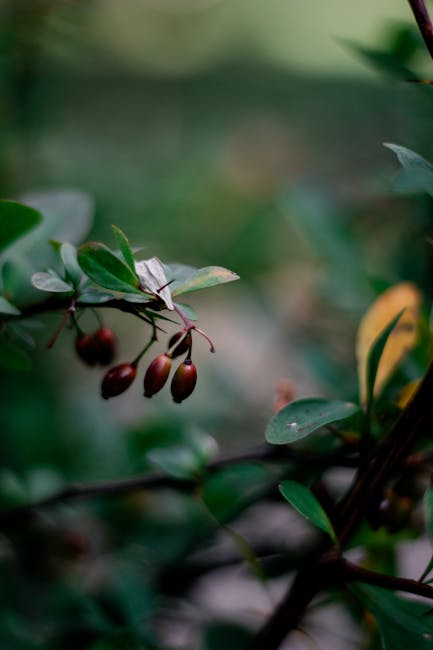Corsican Myrtus Tea: The Mediterranean Brew Calming Nerves in 2025
Discovering Corsican Myrtus Tea: The Mediterranean Brew Quietly Calming Nerves in 2025
In the ever-evolving world of wellness and natural remedies, a hidden gem from the heart of the Mediterranean is quietly making waves: Corsican Myrtus tea. As we move into 2025, this aromatic brew, derived from the Myrtus communis plant, is gaining recognition for its potential calming and therapeutic properties. But what exactly is Corsican Myrtus tea, and why is it becoming a sought-after beverage for those seeking natural ways to soothe their nerves?
Myrtus, also known as myrtle, has a rich history steeped in mythology and traditional medicine. The plant is native to the Mediterranean region, including the island of Corsica, where it thrives in the warm, sunny climate. For centuries, Corsicans have utilized myrtle for its various medicinal properties, including its potential to alleviate anxiety and promote relaxation. The leaves and berries of the myrtle plant are used to create a fragrant tea that offers a unique flavor profile and a range of potential health benefits.
This blog post will delve into the world of Corsican Myrtus tea, exploring its origins, traditional uses, potential health benefits, and how you can incorporate this calming brew into your daily routine. Join us as we uncover the secrets of this Mediterranean treasure and discover why it's quietly calming nerves in 2025.

The Origins and Traditions of Corsican Myrtus
The story of Corsican Myrtus is deeply intertwined with the history and culture of the island. The myrtle plant has been revered for centuries, not only for its medicinal properties but also for its symbolic significance. In ancient times, myrtle was associated with love, beauty, and immortality, and it was often used in religious ceremonies and celebrations. The Romans, for example, dedicated myrtle to Venus, the goddess of love.
In Corsica, myrtle has traditionally been used in various ways, from flavoring local dishes and liqueurs to creating natural remedies for common ailments. Corsican Myrtus liqueur, known as licòr di morta, is a popular digestif made by infusing myrtle berries in alcohol. The leaves and berries are also used to make a fragrant essential oil, which is used in aromatherapy and traditional medicine.
The tradition of making and drinking Myrtus tea has been passed down through generations of Corsican families. The tea is often prepared using fresh or dried myrtle leaves, which are steeped in hot water to release their aromatic compounds. The resulting brew is a light, refreshing beverage with a slightly bitter and herbaceous flavor. It is often enjoyed after meals or as a calming drink before bedtime.

Potential Health Benefits: Calming and Beyond
While more research is needed to fully understand the health benefits of Corsican Myrtus tea, preliminary studies and traditional uses suggest that it may offer a range of therapeutic properties. One of the most notable benefits is its potential to calm nerves and reduce anxiety. The aromatic compounds in myrtle, such as cineole and limonene, are believed to have a relaxing effect on the nervous system.
In addition to its calming properties, Corsican Myrtus tea may also offer other health benefits, including:
- Antioxidant properties: Myrtle contains antioxidants that can help protect the body against damage from free radicals.
- Anti-inflammatory effects: Some studies suggest that myrtle may have anti-inflammatory properties, which could help reduce pain and swelling.
- Digestive support: Myrtle has traditionally been used to aid digestion and relieve bloating and gas.
- Respiratory support: The essential oils in myrtle may help to clear congestion and ease respiratory problems.
It's important to note that these potential health benefits are based on preliminary research and traditional uses. More studies are needed to confirm these findings and determine the optimal dosage and usage of Corsican Myrtus tea.

How to Brew and Enjoy Corsican Myrtus Tea
Brewing Corsican Myrtus tea is a simple and straightforward process. Here's a basic guide to help you get started:
- Gather your ingredients: You'll need fresh or dried myrtle leaves and hot water. If using fresh leaves, rinse them thoroughly before brewing.
- Prepare the tea: Place about 1-2 teaspoons of dried myrtle leaves (or a handful of fresh leaves) in a teapot or infuser.
- Add hot water: Pour hot (but not boiling) water over the leaves.
- Steep: Let the tea steep for 5-10 minutes, depending on your desired strength.
- Strain and serve: Strain the tea to remove the leaves and pour it into a cup.
- Enjoy: Sip and savor the aromatic flavor of Corsican Myrtus tea. You can add honey or lemon to taste, if desired.
Corsican Myrtus tea can be enjoyed at any time of day, but it's particularly soothing in the evening before bedtime. Experiment with different steeping times and additions to find your perfect cup.

Finding and Sourcing Authentic Corsican Myrtus
As Corsican Myrtus tea gains popularity, it's important to source authentic and high-quality products. Look for reputable suppliers who specialize in Mediterranean herbs and teas. Check the origin of the myrtle leaves to ensure they are sourced from Corsica or other Mediterranean regions known for producing high-quality myrtle.
When purchasing dried myrtle leaves, look for leaves that are green and fragrant. Avoid leaves that are brown or brittle, as they may be old or of poor quality. If possible, purchase organic myrtle leaves to avoid exposure to pesticides and other harmful chemicals.
You may be able to find Corsican Myrtus tea at specialty tea shops, online retailers, or directly from Corsican producers. Be sure to read reviews and check the supplier's reputation before making a purchase.

The Future of Corsican Myrtus Tea in 2025 and Beyond
As we move further into 2025, the future looks bright for Corsican Myrtus tea. With increasing awareness of its potential health benefits and its unique flavor profile, this Mediterranean brew is poised to become a staple in the world of natural remedies and wellness beverages. As more research is conducted, we can expect to learn even more about the therapeutic properties of myrtle and its potential applications in various health conditions.
The growing interest in sustainable and ethically sourced products is also likely to drive demand for Corsican Myrtus tea. Consumers are increasingly seeking out products that are not only good for their health but also good for the environment and the communities that produce them. Corsican producers are committed to sustainable farming practices that protect the island's natural resources and support local communities.
Whether you're seeking a natural way to calm your nerves, support your overall health, or simply enjoy a delicious and aromatic beverage, Corsican Myrtus tea is worth exploring. As this Mediterranean treasure continues to gain recognition, it's sure to become a beloved brew for tea lovers around the world.

So, why not embrace the tranquility and let Corsican Myrtus tea gently guide you to a calmer, more centered you?
-Hot Water
Comments
Post a Comment